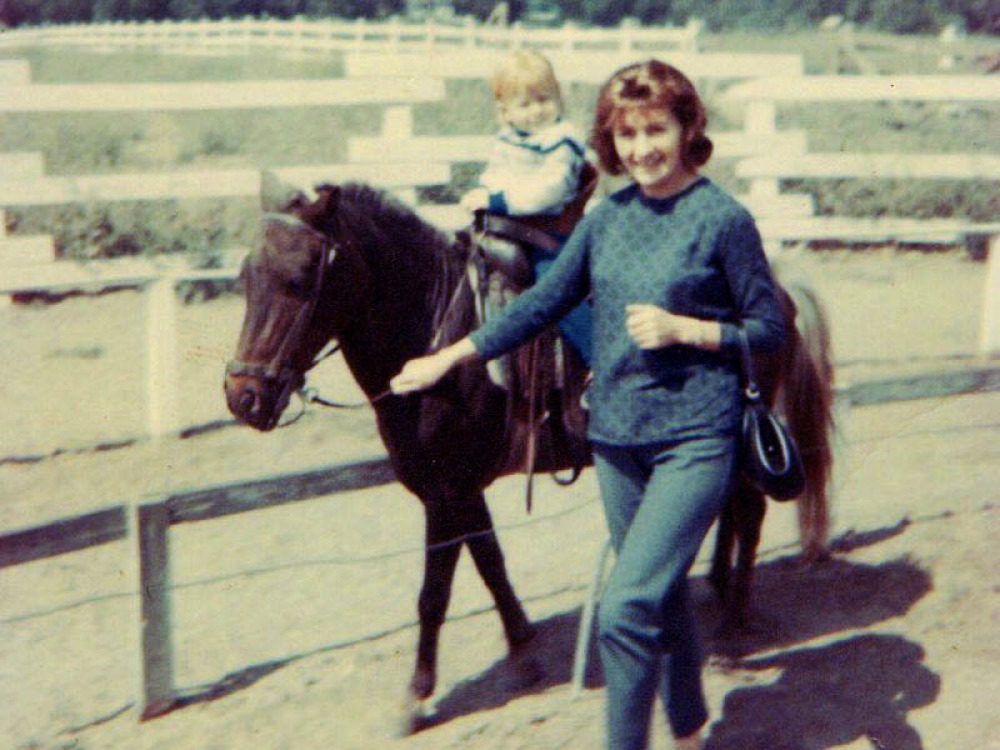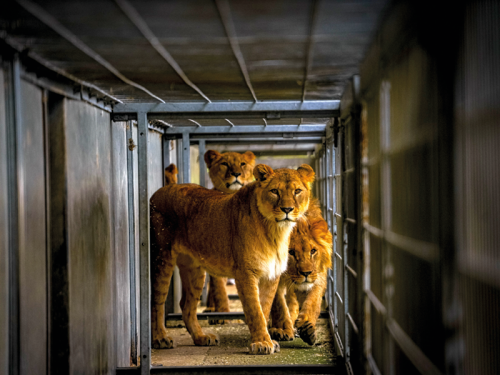Meet The County Durham Equine Massage Therapist Caring for Our Horses

Living North meet director of the Equine Massage Academy and author of new book, Is My Horse in Pain?
Angela lives in County Durham with her husband Mark and labrador Sybil. She was born in California, where her connection with horses began at the age of two. ‘My parents regularly took me to a nearby ranch, and I would sit on a horse, never wanting to leave,’ she tells us. ‘A family tragedy brought me to County Durham as a child, and as soon as I finished studying business and finance, at the age of 22, I couldn’t wait to move south. I’ve always had a thirst for exploration.’
Angela’s career took her to London, Amsterdam and Rome, but it was during a ‘fortuitous’ visit to a stable yard that she decided to rekindle her equestrian pastime. ‘This was when the missing piece finally fell into place,’ she says. ‘As soon as I saw the horses, I felt a sense of peace and contentment that was missing from my life and from that moment on, I knew that I needed to find a path to be with horses in a more meaningful way.’
She says this was a ‘truly transformative decision’ and remains one of the most poignant and rewarding choices she’s made in her life. ‘Whilst growing up in the North, I always rode horses and yearned to have my own one day, but that was to come much later in life, as did my career-change enabling me to work with them.’

Angela discovered the field of equine manual therapy, and was immediately drawn to it as something that fulfilled her love for horses, and that would benefit the horses too. ‘A blend of invaluable support and also the echoes of scepticism surrounded me, with voices dismissing my choice as nothing short of madness, to give up a very well-paid, high-profile career to work with horses,’ says Angela. ‘I refused to be swayed, holding steadfastly to the path my heart urged me to follow. During this transition, my splendid thoroughbred ex-racehorse Shamus came along, then later Joe, accompanying me on this life-altering journey.’ Angela would encourage anyone to turn their passion into a career. ‘After all, we spend most of our lives at work.’
Once she began working therapeutically with horses, she quickly realised the benefits and wanted to share that with others. ‘My approach focuses on treating horses as the athletes they are, recognising that, like human athletes, they require specialised care,’ she explains. ‘This care includes massage, various manual therapies such as kinesiology taping and electrotherapy, among others. Horses often endure significant stress due to the rigorous demands placed on them in equestrian sports, and unfortunately, many are not properly cared for by those who lack the necessary knowledge. Horses are gentle, sentient beings that benefit greatly from therapy, both physically and mentally. I’ve worked with horses considered too dangerous to handle, confined to stables with bars around them due to their perceived aggression; yet, as soon as I placed my hands on them with the intention to help, they responded, trusting me to provide the care they desperately needed.

‘It took time and hard work to build my business as an equine manual therapist both in the North East and internationally, where I have had the fortune of working in Singapore, United Arab Emirates, Hong Kong and China with group one racehorses and with much success.’
While working overseas, Angela has supported many horses towards a brighter future. She describes one situation she witnessed whilst working with racehorses in China. 'I noticed one horse exhibiting extreme signs of distress, known as stereotypies. It was weaving violently in its stable, almost hitting its head on the beams,’ she tells us. ‘I pleaded with the trainer to let me take the horse outside to a small area of sand I had discovered, where some local workers were attempting to grow vegetables. This makeshift pen, enclosed with wooden boards and a rickety gate, was far from ideal, but I was willing to take the risk to give the horse some time outside its stable, otherwise it was only out one hour a day when being exercised. Unfortunately, stabling horses for 23 hours a day is not uncommon for many elite sporting horses including show horses, dressage, show jumpers and racehorses.

‘We led the big horse out, one of us on each side, as it was on its toes, looking around, unsure of what was happening. When we released him into the pen, he went wild – rearing, rolling, and running in circles. I was thrilled to see him express himself, but the trainer watched with trepidation, fearing that this valuable horse might injure himself. After about 10 minutes, we brought him back to the stable, and I worked on him again. I found him to be much more relaxed than he had been earlier. The next day, this horse, who was only supposed to serve as a pacemaker, won his race by a good distance. I didn’t want to take credit, but I knew that much of his success was due to the fact that, for 10 minutes of his life, he had been allowed to be a horse and release a lot of pent-up stress and frustration. I have many more similar encounters to tell…’
Through her business, Equine Massage Academy, Angela educates professionals towards a career with horses such as equine manual therapists, nutrition advisors and bit and bridle consultants. She also offers a full range of continuing professional development courses to support them, as well as a variety of bitesize offerings for horse owners. ‘[That’s] all with the resolute focus of improving equine health and wellbeing from our new multimedia online platform, accessible from anywhere in the world,’ she says. ‘Previously, I was travelling to various universities to lecture, which was an amazing experience. However, post-lockdown, the transition to online teaching has allowed me to spend more time at home and focus on developing more courses.’
In 2022, Angela was approached by The Crowood Press to write a book that blends scientific insights with practical guidance for equestrians, helping them better care for their horses. Is My Horse in Pain?, was published in May this year. ‘It unlocks the secrets of how to truly assess pain, understand its causes, and manage it effectively,’ Angela explains. 'The feedback so far has been amazing, with many stating that every horse owner should have a copy. This makes me incredibly proud.
‘Alongside my work, I am honoured to contribute to respected organisations such as the International Society of Animal Professionals where I hold membership as a Fellow, and also the Institute of Registered Veterinary Animal Physiotherapists. Both are united in their mission to safeguard the welfare of animals. The wellbeing of horses in the UK is improving mainly through education, but there’s still a way to go. I hope that more people take our courses, especially equestrians in the North East, to help further enhance horse care standards in our region and ensure every horse receives the attention and care it deserves.’
Angela’s deep respect and passion for horses is clear. ‘I am hopeful that my future holds a continued dedication to the principles that have guided me thus far, a maverick spirit, compassion, integrity, and a relentless pursuit of knowledge,’ she adds. ‘The road ahead is open, full of promise, and I embrace it with the same enthusiasm that brought me here, with another book in the planning. I can say with certainty that the future is bright for most who dare to follow their true calling.’







